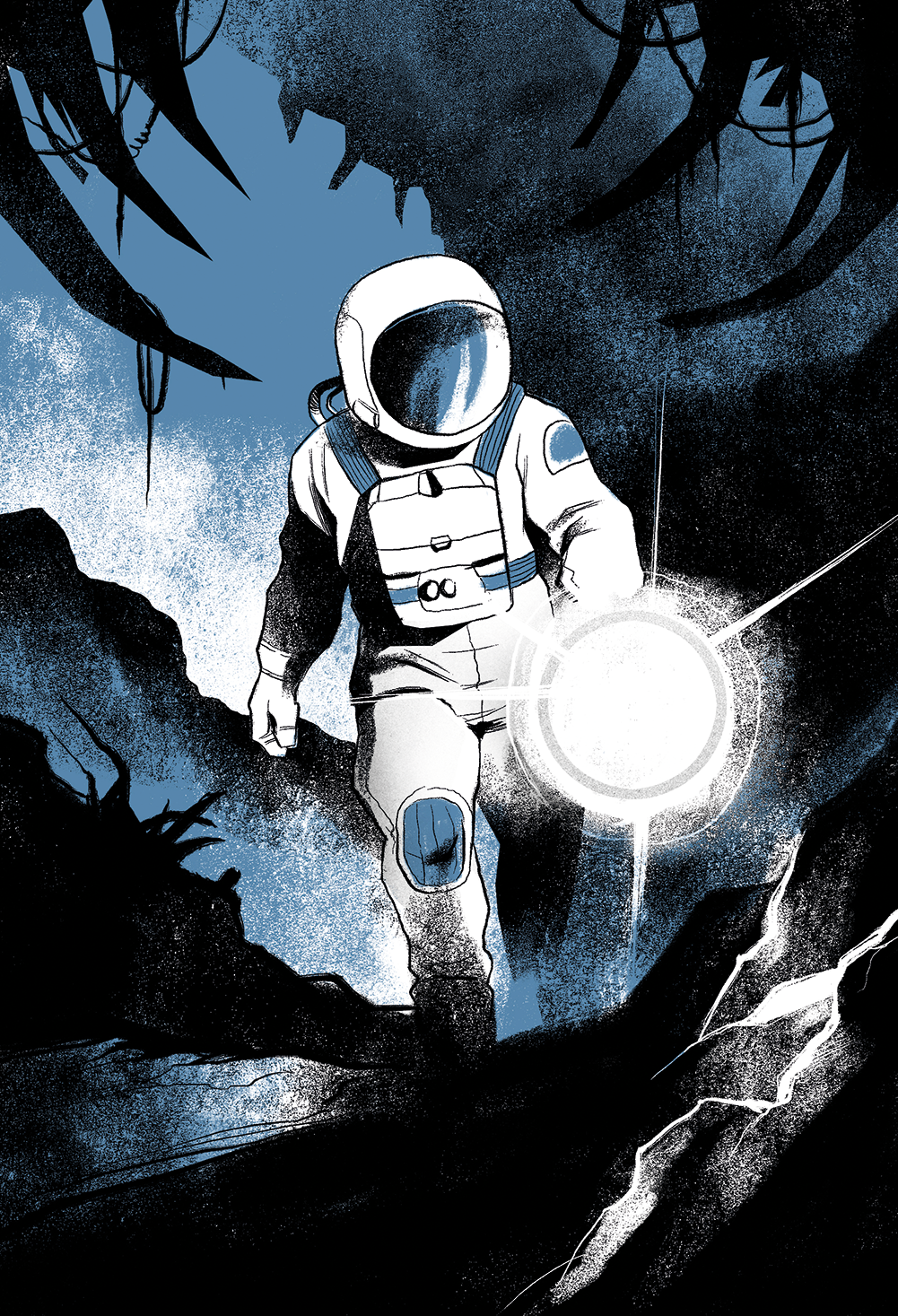In November, the Osprey Roleplaying line will be growing with the publication of Those Dark Places: Industrial Science-Fiction Roleplaying by Jonathan Hicks. Today on the blog we have Jonathan's second designer blog, which can be found here or on his personal blog.
Today I wanted to talk more about the game system that 'Those Dark Places' will be using.
The system is called 'ODDS' (although it is not addressed as such in the game), which stands for 'One Die Determines Success'. The game uses a single D6 for task resolution as I wanted the game to focus more on the story rather than the crunch. The system is very simple - take an attribute, add any relevant modifiers due to the position in the crew, any equipment and actual situation, and roll a D6. Add the scores together to beat a target number, and interpret the results depending on the level of success.

Artwork by Nathan Anderson
These three levels of success are key to the tension and uncertainty that I want Those Dark Places to offer - the players can make their rolls with their modifiers and they have a target number to beat, but they can kind of succeed if they hit the target number. So, yes, they closed the airlock but did it seal properly? They convinced the guard of their intentions but will he reconsider his decision later, perhaps sound an alarm? The simple threat of these incidents possibly coming back to haunt the players always hangs in the air, and it helps the GM to come up with some fun and twisted ways to make sure that the story is unpredictable, as well as giving them a chance to game on the fly and spontaneously create new and exciting situations.
I also wanted the game to be quick and intuitive - pace and tension can be disrupted when players have to do a lot of number crunching or table searching. Many games of this kind that I have played in have been slowed as rules are read, debated and interpreted and once the tension is gone the atmosphere is ruined; I wanted a simple system that avoided that. It leaves a lot of the work in the GMs hands, for sure, but the system is easy to interpret so they can just make a ruling and get on with the story. It's fast, ever so simple and easy to grasp so you can have a game going in minutes. It's also really workable, so if you want to make modifications to the rules and add a lot more depth then you can do so with ease.
In my next blog entry I'll talk more about character creation.


Comments
You must be logged in to comment on this post. Click here to log in.
Submit your comment